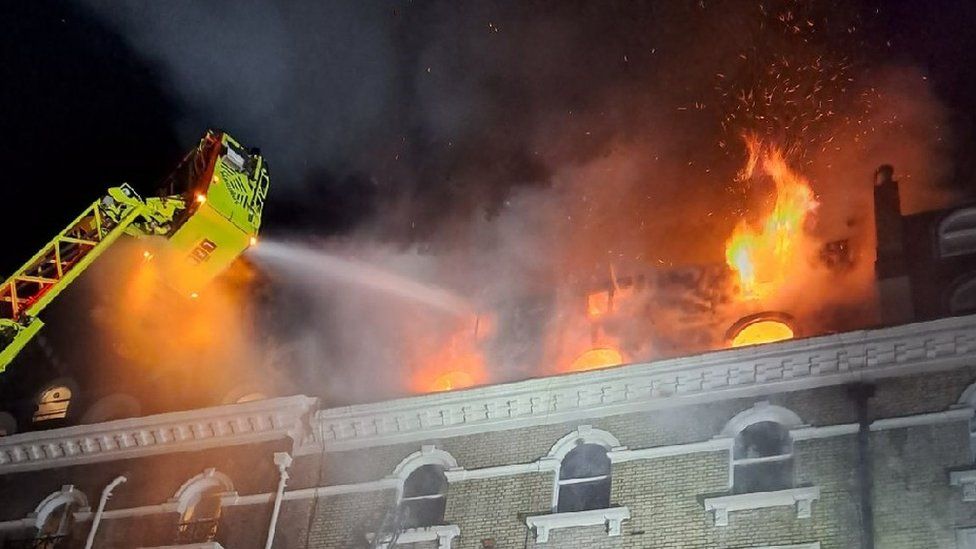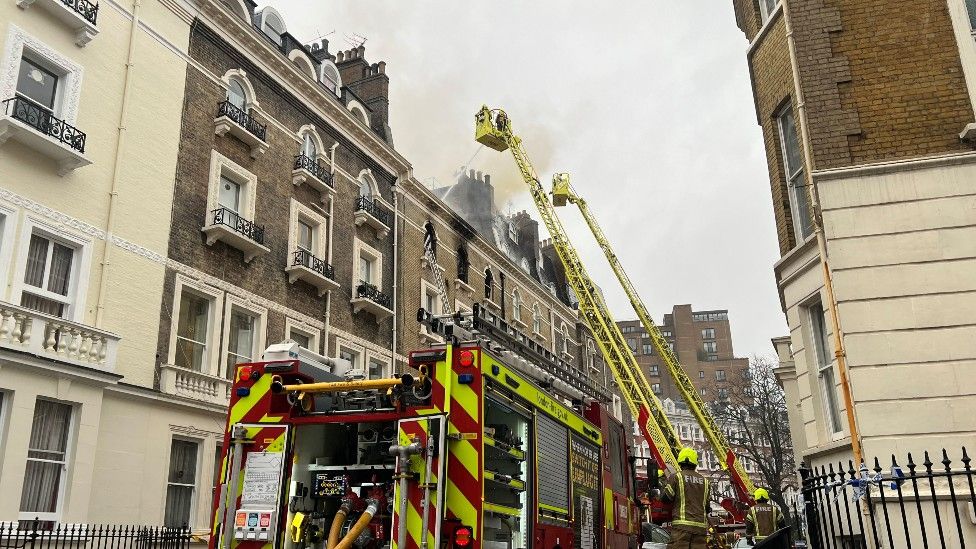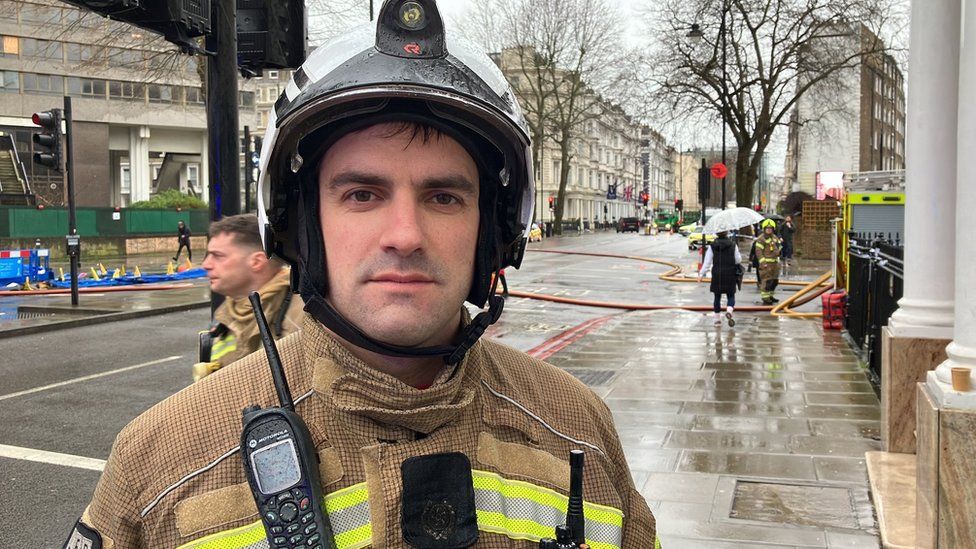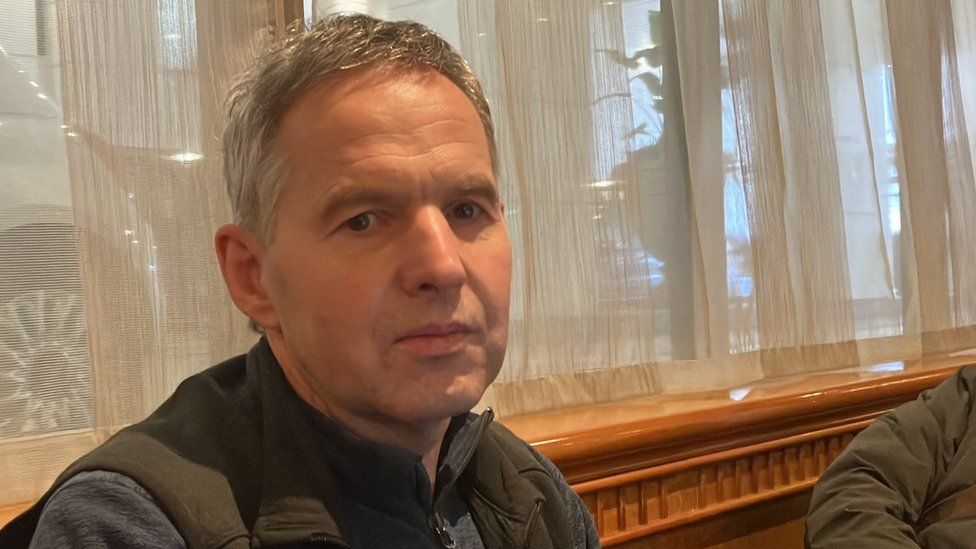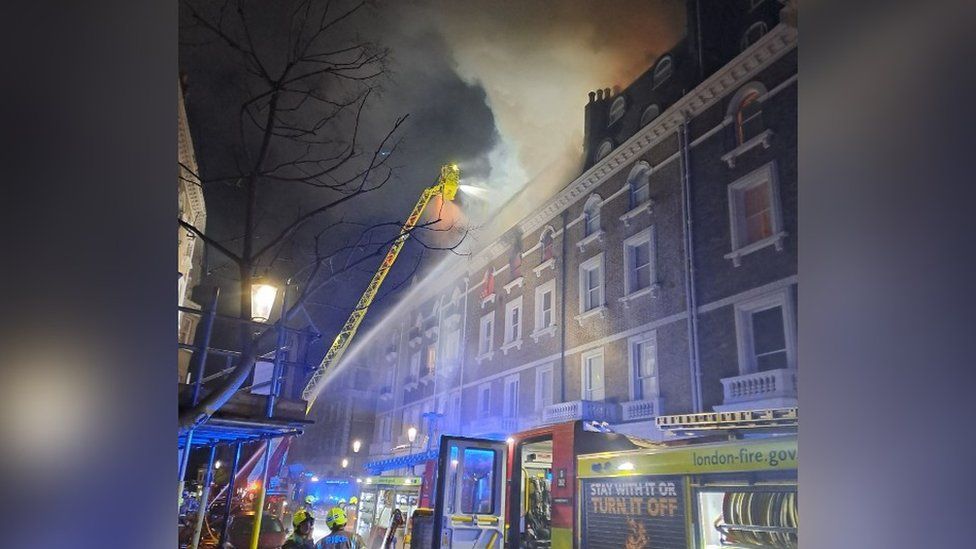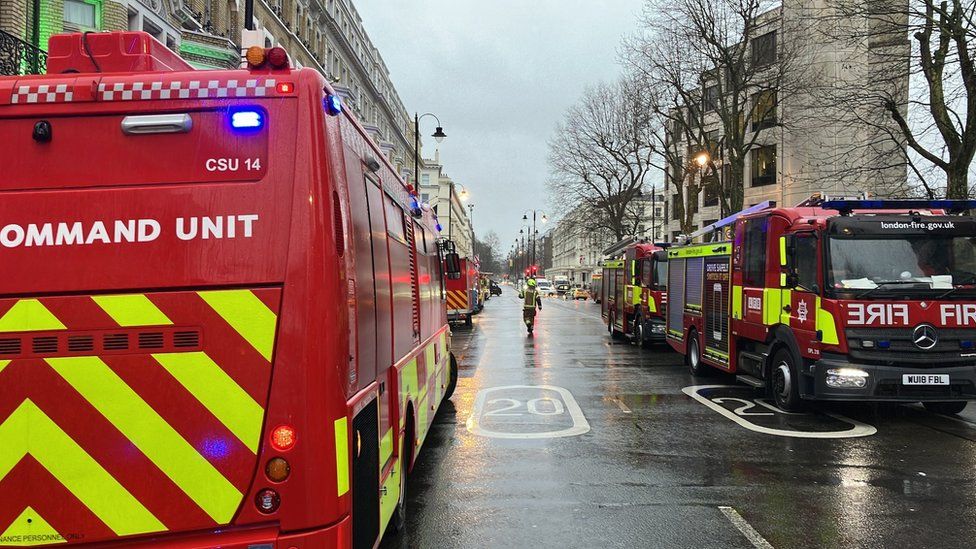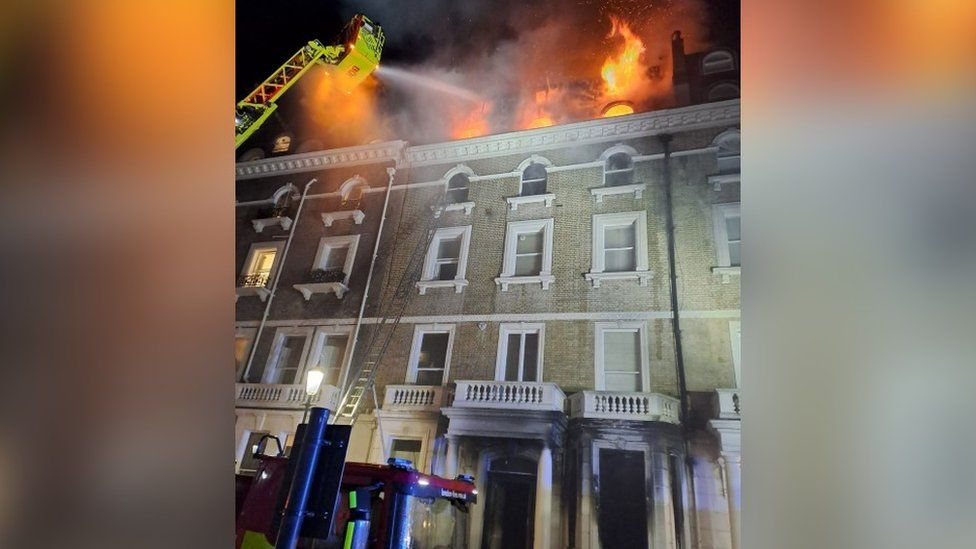When police first came to Margaret Caldwell’s door in April 2005 and told her that her daughter, Emma, was missing, her breath caught in her throat. For the next five weeks, Margaret and her husband William existed in a kind of terrible purgatory. “We spent hours and hours every day looking for her. Sometimes you thought you saw her in the distance, but it was someone else. We didn’t know what else to do.”
Those weeks pale in comparison to what the Caldwells would later be forced to endure. Emma’s body was found on May 8 in Limefield Woods, 44 miles from Glasgow, where she lived. She was naked and had been strangled. Despite early evidence linking her death to one particular man, it would take 19 years to convict him. Nineteen years, a bungled police investigation, and the tenacity of one mother with an army of women behind her, all of them ready to speak up for Emma, for themselves, for the many girls who had suffered at the hands of her killer.
Iain Packer was convicted this week of murdering her daughter and sexually assaulting 22 women. But Margaret should never have had to endure two decades of purgatory, while Packer lurked in plain sight, free to attack again and again and again, while the police force that should have caught him covered its own tracks. He hadn’t fled the country or gone underground; he was going about his life right under the police’s noses.

After a newspaper in Scotland eventually named him as a suspect in 2015, prompting the investigation into Emma’s murder to be reopened, Packer was even arrogant enough to court press attention. He asked the BBC if they’d like to interview him, so confident was he that he would never be found out.
He maintained his innocence all the way through the trial. Now 51, he has been sentenced to 36 years in prison – the second-longest term in Scottish legal history. You suspect that, for every one of those 36 years, he will claim never to have laid a finger on Emma.
There was such a clear path leading the police to Packer that their failure to convict him is difficult to comprehend. When she went missing, Emma was living in a hostel in Glasgow. She was 27 and had been living something of a half life. She had grown up in a happy, stable home. She loved horses and had dreams of going to America or Australia to work on a ranch. When her older sister, Karen, died in 1998, Emma turned to drugs to cope with her grief, becoming addicted to heroin. Her parents worried about her day and night, but they still saw her often and spoke constantly.
“She phoned every day, she wanted to know what we were having for dinner, how the family were,” Margaret told journalists this week. “She still kept a certain amount of pride, even though she was in those circumstances and we just lived for her coming home.”

They knew the drugs had a terrible grip on her; they didn’t know she was making money to fund her addiction through sex work. “We just thought she wanted to stay at the hostel till she could get into rehabilitation some way,” said Margaret. Women who knew Emma in the hostel have spoken since of how close she was to getting the help she needed.
The Caldwells “didn’t know how much [heroin] cost”. “I have heard later it cost hundreds of pounds – maybe even per day in some cases.”
After her death, Margaret has said she was plagued by guilt. “It was a terrible place to live, Inglefield Street. I wish I’d taken her home.”
Any guilt, of course, should only lie with one man.
A rape allegation was first made against Packer as early as 1990. Magdalene Robertson, who has waived her right to anonymity, was his first known victim. He was in a relationship with a relative of hers and raped her when she was just 14, going on to assault her repeatedly over the course of two years, driving her to the brink of suicide. In the trial, she said only one word was applicable to Packer: “incubus – a sex-obsessed demon”.
By 1993, Packer was soliciting sex workers whenever he could afford it and was known in the community for being a violent client. In the trial, the prosecuting barrister told the jury that at the time police were “dismissive” of reports of assault made on sex workers. Violence was deemed “part and parcel of their job”.
A witness told the trial how Packer chose girls who were “young, vulnerable and on drugs”. He became obsessed with Emma, following her and attempting to scare away other clients. From the moment her body was discovered, he was an obvious suspect.
Packer was first spoken to by police six weeks after Emma was found. He denied knowing her – two months later he admitted he did and that he had taken her to Limefield Woods. In the first two years of their investigation, police would interview Packer six times, but never under caution as a suspect. Officers wanted to charge him but somewhere up the chain, the message came: let him go.

Strathclyde Police were doggedly pursuing a different line of inquiry. The last call on Emma’s phone the night she went missing led them to a Turkish café, which was where the police focused their investigation.
For two and a half years (and to the tune of £4 million) they went after the wrong men. “They bet the ranch on the Turkish suspects,” says Brendan McGinty, former deputy editor of the Sunday Mail, which eventually exposed Packer as a suspect.
“Before I even knew the name Iain Packer, this investigation into the Turkish men was a big, big deal. It was going to be the biggest case based on surveillance at the time. So when that collapses you can see the obvious difficulty for the police and for the Crown to then go ‘okay, let’s do plan B, which is Iain Packer, an incredibly viable suspect who has had zero to do with the Turkish case’. It was easier and more expedient for everybody, I think, to forget about it.”
And so the investigation went quiet. For ten years, Packer’s name never saw the light of day, affording him the protection he needed to go on offending. Gary Holmes, a former Scotland Yard Homicide Senior Investigating Officer, says Strathclyde Police’s failure to not return to the drawing board is unconscionable, particularly given the evidence they already had on Packer. “If you get any evidence or any leads you have a duty to investigate, no matter the reason, it would be undoubtedly wrong to not reexamine lines of inquiry if they’re valid, if nothing else then for public confidence.”
Not returning to a known suspect after one trail goes cold is “extremely rare, almost to the point of being unheard of”, he says. “If you have a suspect for a homicide investigation you really do make the effort to do all you can to convict that person.”
“There were police officers possibly at a junior level who were pressing for a revisit on Packer,” says McGinty. “I’d love to know why that revisit didn’t take place. I’d like to know where up the chain this thing ended.”
In 2015, on the ten-year anniversary of Emma’s death, the Sunday Mail, which had been leaked his name, published a story naming him as a forgotten suspect in the case. McGinty spoke to Packer outside his house. He recalls a man who seemed “a mix of confident and stupid”. “When you’re suspected of a murder that is a very dangerous combination to be.”

Sources who knew Packer told the paper he was unlikely to be confrontational when approached. “They said his violence was towards women. That he would react differently to a man.”
On the doorstep, he refused to answer questions. That was surely a job for the police and the justice system. “There was a feeling among people who knew him that if you could get this guy into the dock he would trip himself up,” says McGinty.
“That’s why there was a lot of frustration over the failure of the police and the criminal office in Scotland to get him into the dock over so many years. The thought was he is delusional, he’s confident – possibly over confident – he’s stupid and he tells lies. And that combination may be eventually what trips him up.”
Rather than go back to the case, the police attempted to hunt down whoever had leaked to the paper. “They didn’t reopen the murder case, they opened an investigation into finding out who the leak was in the police,” says McGinty.
“It was utterly farcical. It wasn’t until several weeks later that the case was reopened and it wasn’t reopened by the police, it was reopened by the Lord Advocate who ordered the police to reopen it.”
McGinty met with senior officers, who said Packer’s name constantly being in the paper while they pursued the case “might not be that helpful”. By this point, the story had had the desired effect. “We took them on trust at that point that there wasn’t any real point in us doing story after story after story on Packer. The case had reopened, the police had appealed to us to allow them the space to investigate and we thought it was only fair that we should allow them to do that.”
Police were eventually found to have conducted an illegal spying probe on officers and journalists involved in the Packer leak. “They unlawfully accessed my colleague Jim’s phone,” says McGinty, now a communications consultant. “Of course we were incredulous at it. It surprised us but it didn’t surprise us. If you knew the policing culture at the time, it wasn’t a huge shock when it emerged that it had happened. I think there was a paranoia in the very upper echelons of the police about the Press.”
Deputy Chief Constable Neil Richardson was forced to step down over the probe in March 2016.
By 2018, Packer seems to have become almost giddy with power. At this point, his name was still attached to Emma’s murder, but no one has arrested him. He contacts the BBC saying he wants to clear his name. Samantha Poling interviews him, investigates him, and interviews him again. In the first he looks flushed, his thick neck sunken into hunched shoulders. He is braced, but confident. “Ask me anything,” he tells her, arrogantly assuming she won’t then go and do the job of an investigative journalist and find out what he has done.
“After months of investigating him I knew that he was an incredibly sexually violent man,” Poling said. “I started to find out that Iain Packer had been taking women down to remote woods where he would force them to strip, where he would sexually assault them, where he would terrify them. And just metres away from where this was taking place is where Emma’s body was found and she was naked and she was strangled.”
When she tells Packer this on camera in the second interview, you can see his face change. A former partner told the trial he was “white as a sheet” after that second interview. “You could see something had gone badly wrong. It was as if it was all closing in on him,” she said.

Two days after the BBC’s programme airs, Packer is charged with attacking a former partner and in February 2020 he is jailed after pleading guilty. In 2021, soil in the footwell of his van is found to be a 97 per cent match for the soil found at the exact spot Emma was found. In February 2022, Packer is arrested on suspicion of her murder; by December, additional charges have been brought.
Sixteen women were attacked after Emma was killed and after Packer was first on the police’s radar. This week’s victory is theirs, and that of Margaret Caldwell, who paid tribute to those women “who spoke up not just for Emma but for the many unknown victims of Iain Packer”. Outside court, her lawyer said: “Margaret also wishes to acknowledge those who have been lost due to illness, overdose and other forms of harm. Those women were a part of our communities. They were important to their loved ones, to their families, and should have been important to the police.”
She believes police “systematically sabotaged an investigation into Packer for a decade and have blood on their hands”. Police Scotland has apologised to the victims, saying they were all “let down by policing in 2005”. “It is clear that further investigations should have been carried out into Emma’s murder following the initial inquiry in 2005. The lack of investigation until 2015 caused unnecessary distress to her family and all those women who had come forward to report sexual violence.”
Emma’s father never lived to see his daughter’s killer brought to justice. For her mother, at least, 19 years after her breath first caught in her throat, it was finally safe to exhale. “Now I feel as if I can breathe again.”
https://news.google.com/rss/articles/CBMiaGh0dHBzOi8vd3d3LnRlbGVncmFwaC5jby51ay9uZXdzLzIwMjQvMDMvMDIvZW1tYS1jYWxkd2VsbC1raWxsZXItaWFpbi1wYWNrZXItcG9saWNlLTE5LXllYXJzLTIyLXZpY3RpbXMv0gEA?oc=5
2024-03-02 07:00:00Z
CBMiaGh0dHBzOi8vd3d3LnRlbGVncmFwaC5jby51ay9uZXdzLzIwMjQvMDMvMDIvZW1tYS1jYWxkd2VsbC1raWxsZXItaWFpbi1wYWNrZXItcG9saWNlLTE5LXllYXJzLTIyLXZpY3RpbXMv0gEA



